Ivan Shamaev finished his Master studies in summer
2020, received an honour Diploma of MPEI, Institute of ITCS, Department of
Computing Machines, Systems and Networks. In a month, he excellently defended
his second thesis at the European University. Now, he speaks of his experience:
The route from
summer school to successful completion of Double-Degree program.
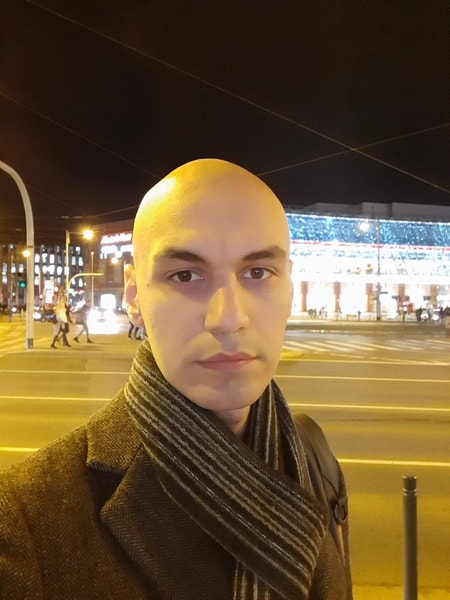
"In my
first Master year at the Department of Computing Machines, Systems and Networks
of MPEI I completed all the hard work of getting admitted to the Double-Degree
program that was organized by MPEI and Wroclawska Politechnika. At that moment
I had already had experience of studying at this University. Due to the
long-lasting and strong ties between MPEI and Wroclawska Politechnika, I
managed to study at Summer School 3E+ in 2015 and participate in the autumn
semester of Erasmus+ program. This meant I went to familiar territory and knew
what to expect.
The
international name of the University is Wroclaw University of Science and
Technology, and the local one is Politechnika Wroclawska. Historically it was
founded in 1945 after the end of WWII, being a descendant of three schools:
Lviv Technical University and University named after Ian Kazimir that gave
Wroclaw the first professoriate, and German Technische Hochschule that gave it
the Campus left after the war. At present, it is one of the most prestigious technical
universities of Poland with a huge Campus, private cable-car and stadiums and
all the necessary infrastructure. The architecture style of the University
varies from pompous old-German to contemporary constructions of glass and
steel, as shown in the photos. The own cable-car is used by students and
teachers to cut the way from one part of campus to another across the Oder
River.
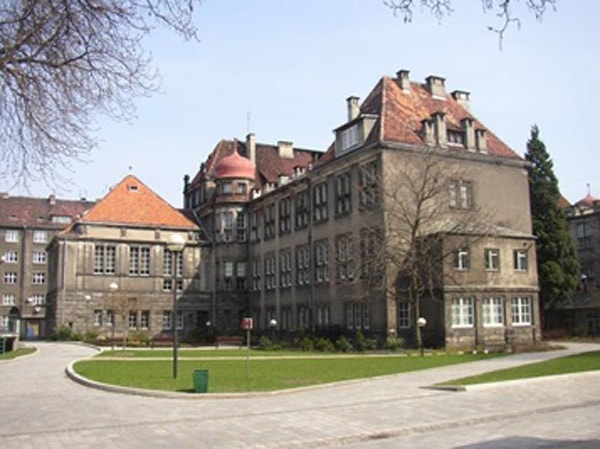
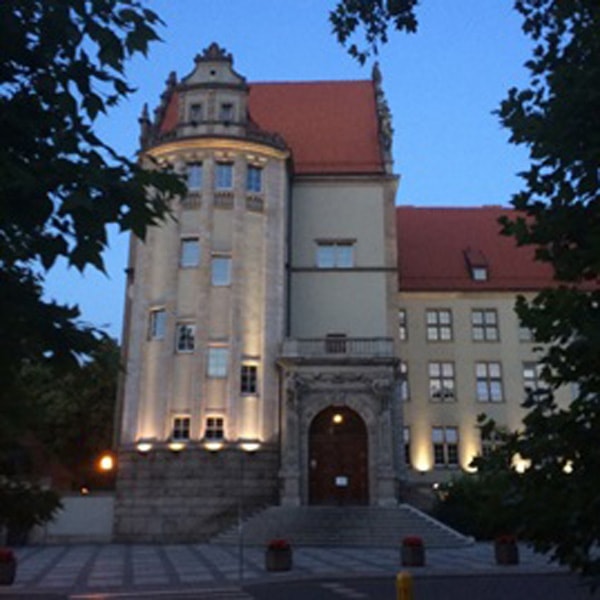
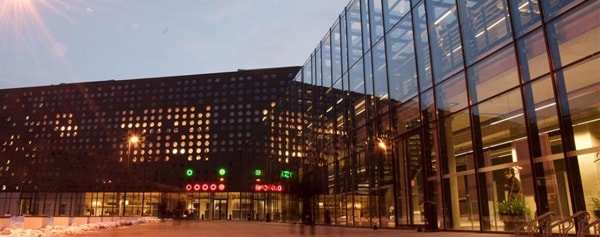

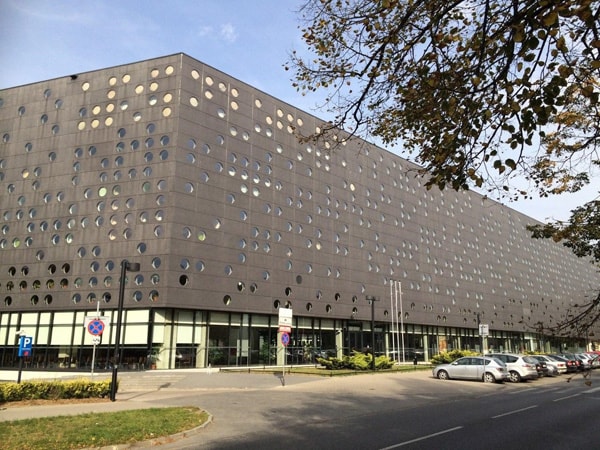
The concept of
the Double-Degree program was quite simple on paper. For my case the program
was carried out on the basis of individual schedule (not an academic leave): as a first-year Master student, I was trainded at my
home university. The second year I studied at the foreign one where I wrote and
defended two Master theses and
finally got the Diplomas of both sides. In reality, to achieve the ideal, the
curricula should be almost identical. If not, many coordinations, maneuvers and
work are needed, which was my case. In the solutions of these and other
problems I had great support from MPEI coordinator Irina Kulik, Head of IITCS
Sergey Vishnyakov and Head of the International programs Center Igor Zhelbakov
and employees of the Department of International Relations.
Upon arrival to
Wroclaw and after the talks with the Electronics Faculty that admitted me, my
Polish Coordinator Dr. Dariusz Caban advised me to change my curriculum
completely, from Advanced Informatics and Control to Internet Engineering. This
change was determined by mutual and so, double benefit: I received a curriculum
that was closer to the MPEI one and Dr. Caban received more freedom to monitor
my study process in Wroclaw.
The University
grants the hostel, it is quite good, I used to live in T-15 building, there
were rooms for two persons, and in T-6, with rooms for three. But I do not
advise students from out of the EU to get it. Europeans receive considerable
discounts that the others are deprived of, and the 600 zlotys with the fees for
water, power and washing machine, are almost equal to the loan price of a good
room for one in Wroclaw that can give the comfort and privacy unmatched by the
hostel’s.

Wroclaw
is a city with a unique and very long story. Initially, it belonged to the
Kingdom of Poland, then to the Duchy of Silesia, the Bohemian Kingdom, the
Hungarian Kingdom, Prussia and Germany, and after the Second World War it
returned to Poland again. That lead to the diversity and architecture
uniqueness of the city that is alike and unlike other Europe at the same time.
I definitely recommend seeing it with your own eyes.
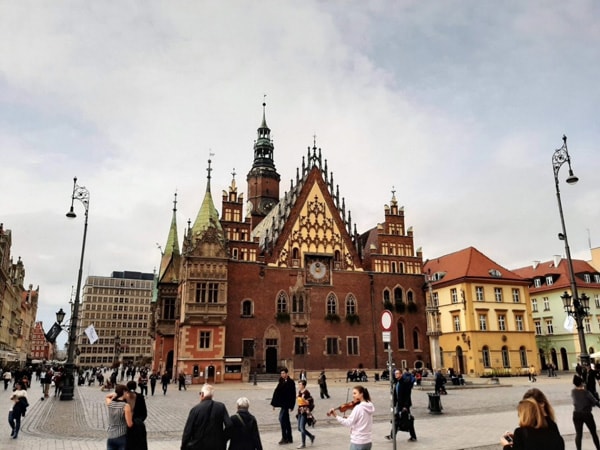

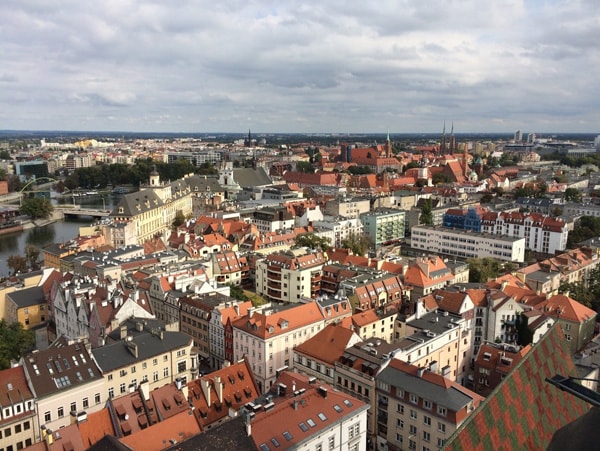


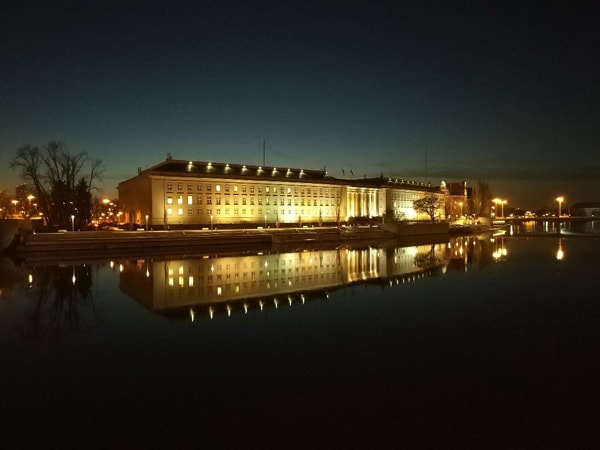
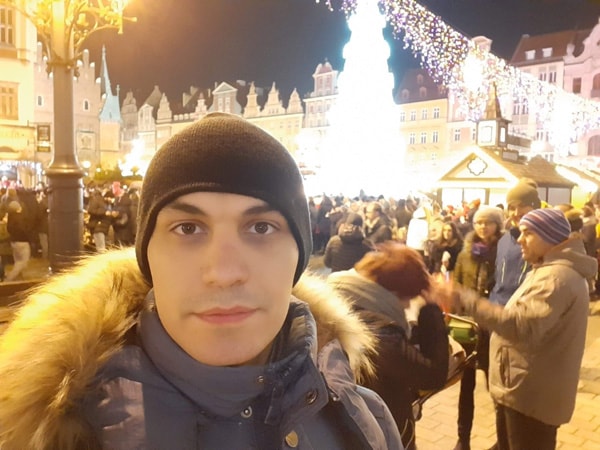
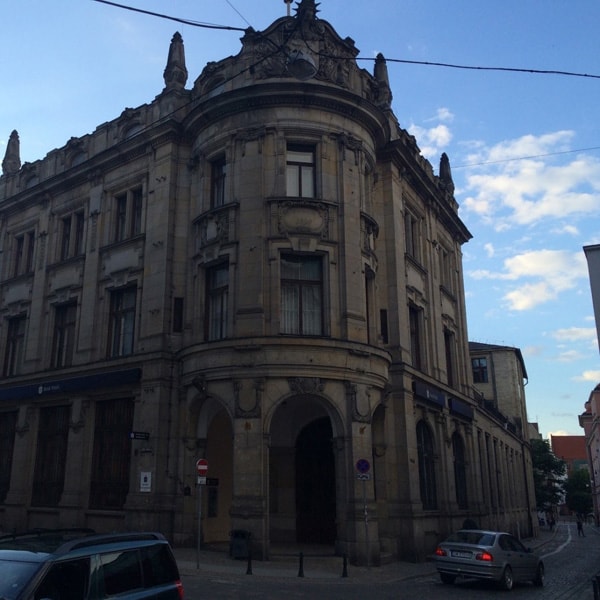
The first
semester of education in Wroclaw, frankly speaking, was quite tough, because I
had to complete the work at MPEI remotely and study at Politechnika. In fact,
it was the double academic charge, but it was my decision. When Christmas
holidays started in Poland, I came to Moscow to report the work done upon my
remote education in the autumn semester. Then, after going back to Wroclaw, I
completed the session and passed to my last study semester. Basing on my
experience, I can definitely advise those who are not fully self-confident - it
is better to take the academic leave instead of the individual schedule. In
this case, a year of education is added, but the charge is more moderate and
you are free from difficult maneuvers.
The second semester differs from the first one by the MPEI IITCS timetable that
liberates the student from regular work and gives him room to write the Master
thesis. In Wrocławska Politechnika students of the last semester of Master
course both study regularly and write the graduate thesis. Doctor Caban helped
me to find the scientific supervisor Doctor Tomasz Babczyński that took the
thesis theme adjacent to the MPEI thesis theme. As well, Dr. Babczyński knows
Russian and so offered help to check the MPEI work because the theses were
informally related. During this semester the Covid-19 pandemic started in
Europe and all the educational institutes commenced to work distantly, and the
borders were closed. In spite of that I carried out both theses on time,
defended them both via Internet and received two Diplomas of Master-engineer.
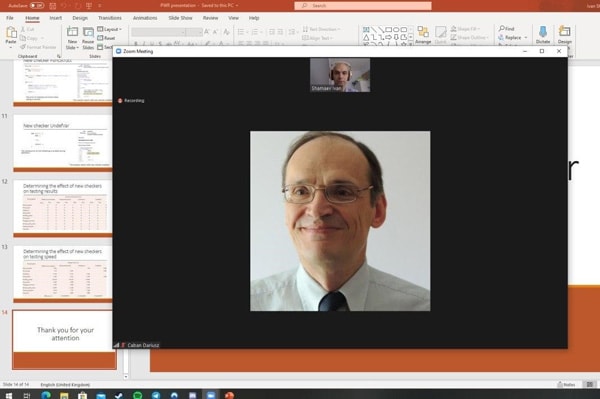
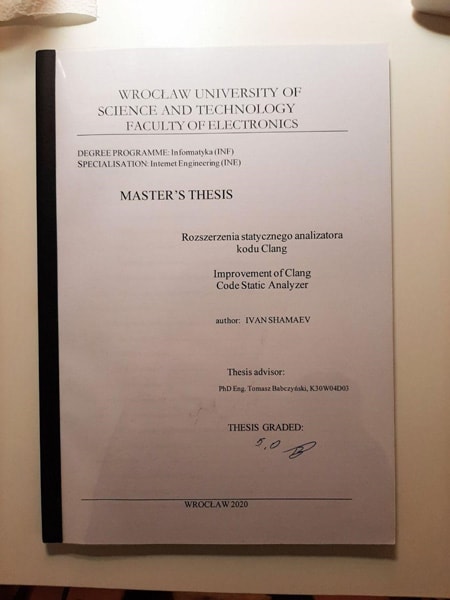
Upon conclusion
I would like to recommend to all the students the international programs of
MPEI. I made it through 3 levels of education - summer school, one-semester
academic mobility, Double-Degree program - and all of them were fruitful. The
summer school gave basic knowledge about studying abroad, Erasmus+ gave an
opportunity to have a full-scale study for a long time, learning the details.
And the Double-Degree program permitted to convert the efforts given to the
Diploma of a highly-rated European University.
I would like to give credit and gratitude to Irina Kulik, Sergey Vishnyakov,
Igor Zhelbakov, MPEI Department of International Relations, as well as to Prof.
Dariusz Caban, Ms. Ewa Mroczek, Prof. Tomasz Babczyński and Ms. Anna Kolman.